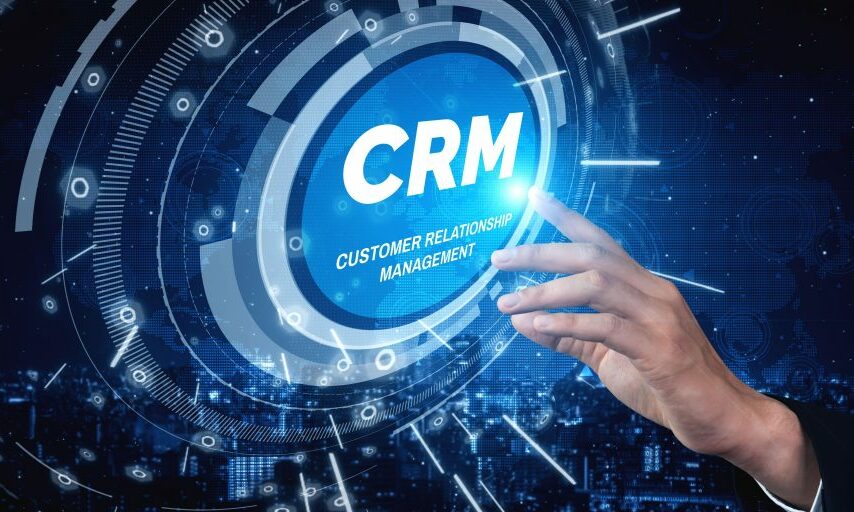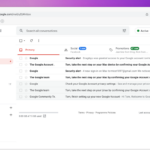It’s becoming more crucial for government organizations to use data-driven decision making as they work to offer their citizens better services and initiatives. Many businesses have opted to use customer relationship management (CRM) analytics in order to do so effectively and economically. Governments are able to acquire real-time insights into the inner workings of their departments by utilizing CRM analytics solutions like Dashboard Software Solutions. This enables them to make better-informed decisions that will allow them to better serve their citizens. We will discuss how CRM analytics may enhance decision-making inside governmental organizations in this blog post, and we will also provide a case study on how one organization effectively utilized this technology.
What is CRM Analytics and How Can it be Used in the Government Setting
Customer relationship management analytics, or CRM Analytics, is the process of gathering and studying important data about how customers interact with an organization. CRM analytics can be applied in a government setting to raise citizen happiness and engagement levels. Governmental organizations can pinpoint areas for improvement and put forth initiatives that better serve the interests of their constituents by evaluating data related to citizen questions, comments, and service consumption. In the end, this might result in more people having faith in the government and better service. CRM Analytics can also be used to monitor public opinion regarding particular programs or policies, which can help with decision-making and increase transparency. The potential advantages for both citizens and government agencies outweigh any special difficulties that may arise from deploying CRM Analytics in the public sector.
Benefits of Adopting CRM Analytics for Government Processes
Analytics is becoming more and more important in today’s data-driven world as decision-making processes span numerous industries. The public sector is not an exception. While government organizations have historically depended on fragmented data sources, impromptu spreadsheets, and manual reporting systems, implementing CRM analytics can give their operations the much-needed standardization, automation, and consistency. Government organizations can more efficiently acquire deeper insights into their operations, increase efficiencies, and make evidence-based choices by utilizing the massive volumes of data they currently have. CRM analytics, for instance, can assist governmental organizations with a variety of tasks, including identifying inefficient regions and monitoring service performance. Adopting CRM analytics has the ability to speed up response times and optimize resource use, which can be a game-changer for government organizations looking to accomplish more with less resources.
Success Stories Showing Positive Impact of Using CRM Analytics
Businesses are learning incredible success stories by adopting CRM analytics thanks to the rise of Customer Relationship Management (CRM) software. Companies may gain a deeper understanding of their consumers, spot patterns, and pinpoint areas for improvement by utilizing the power of data. Numerous industries, ranging from Fortune 500 firms to tiny startups, have benefited from CRM analytics. One retail company, for instance, was able to improve the targeting of their marketing campaigns by integrating CRM analytics and increasing customer retention by 40%. Another instance involved a hospital business that used CRM analytics to raise patient interaction and witnessed a 20% rise in favorable medical results. These examples show how CRM analytics have the power to completely alter business models and whole sectors.
Implementing and Maintaining a CRM System in the Public Sector
Implementing and maintaining a CRM system is still a crucial task in the public sector. CRM systems have shown to be useful tools in light of the government’s commitment to ensuring that all citizens have access to services and information as well as the requirement to continuously improve the citizen experience. These systems enable public sector organizations to streamline processes, maintain data accuracy, and improve service delivery to their clients. They are primarily geared to manage customer data and interactions. Additionally, a CRM system allows government organizations to gather information on customer wants, preferences, and complaints, which may be used to inform decisions. It is a wise investment because it is said to boost customer satisfaction, productivity, efficiency, and cost savings over time.
Challenges to Consider When Integrating a New CRM Solution
A business can benefit greatly from integrating a new government CRM solution, but there are also special hurdles involved. Making sure the new system is compatible with existing procedures and systems is one of the primary issues. To prevent expensive delays and disruptions, this requires thorough planning and testing. Teaching staff members how to use the new system efficiently is another difficulty. To achieve the best adoption and usage of the new system, it is essential to win over the staff. The necessity to transfer data from the old system to the new one without loss or damage makes data migration another difficult task. In the long run, successful implementation and higher business growth result from addressing these issues up front.
Best Practices for Leveraging Data for Effective Decision-Making
Data is available everywhere, and organizations must use it effectively in order to make decisions. Businesses can analyze data to generate useful insights that can guide their decision-making processes with the correct tools and methodologies. Using proper data analysis techniques, guaranteeing data quality, and including stakeholders in the decision-making process are the best practices for using data. Along with ensuring that the data is presented clearly and succinctly, it is crucial to ensure that it is in line with the objectives of the organization. Organizations may make decisions that lead to success by having a good understanding of best practices for exploiting data.
In the end, it’s critical to be able to integrate a CRM system for government activities. This innovation could fundamentally alter how public sector organizations operate and make data-driven decisions. Given this, it is crucial to follow important best practices while tackling the challenging work of transferring systems or starting from scratch. There will undoubtedly be difficulties, but these shouldn’t be allowed to overshadow the significant benefits that CRM analytics provides. Overall, government agencies should not underestimate the possibility that CRM analytics presents for improved decision-making and collaboration. As a result, in order to ensure optimal optimization, everyone engaged with a government organization should make sure they are familiar with the system and effectively utilize the data offered by CRM analytics. The quality of governmental operations will be much improved as a result, and it will also boost current and future public sector performance.








